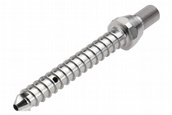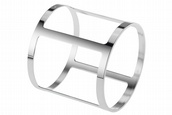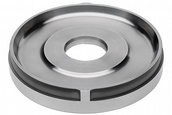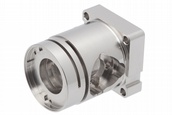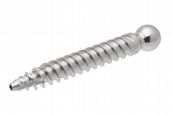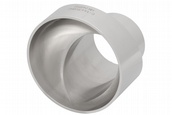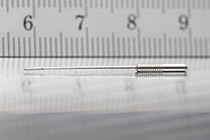CNC turning
We turn your parts up to diameter 250mm. You will profit from our long-standing experience in in polygon turning, plain turning, diamond turning and hard turning. Metals such as aluminium, titanium or high-grade steels are turned in narrowest tolerance ranges.
- Turning on 33 CNC high-performance lathes.
- Complete tooling on one lathe, up to 11-axis.
- Maximum turning diameter 250 mm, turning length 650 mm.
- Loading/unloading robot for turning parts with diameters up to 200 mm or a weight of 20 kg.
- 3 shifts per day are possible.
The quality of a finished product depends on the quality of its components. And, therefore, on the ability to produce even the most demanding turned part within a very tight range of tolerance.
For example: out-of-round holes for a shaft bearing polygon so that a diesel engine runs smoothly. Or plain turned conveyor rollers so that film strips reach their destination without scratches. Or diamond turned, high-polished surfaces so that laser beams can be fired with pinpoint accuracy. Or hard turned bearing bushings so that the turbocharger develops full thrust.
Werder Precision Engineering can offer you the full range of turned machine parts up to 250 mm in diameter.


 Raphael Vögtli
Offers / Quality management
Raphael Vögtli
Offers / Quality management
